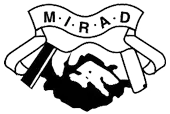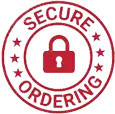Will Cycles Carry Private Number Plates On UK Roads
Reg Plates ArticleWill Cycles Carry Private Number Plates On UK Roads

The safety and regulations surrounding cyclists have come under renewed scrutiny in recent times, with calls for mandatory number plates and rider identification sparking a heated debate. Proponents of the change argue it would improve road safety and accountability, while opponents see it as an unnecessary burden and a potential infringement on personal liberty. This article explores both sides of the argument, delving into the potential benefits and drawbacks of such regulations.
Arguments for Number Plates and ID:
Enhanced Enforcement: Proponents argue that number plates and ID would enable authorities to effectively enforce traffic laws and hold cyclists accountable for reckless or dangerous behaviour. Currently, identifying and pursuing cyclists who violate traffic rules can be challenging, creating a perception of impunity and potential disincentive to follow road regulations.
Reduced Hit-and-Run Incidents: Number plates could offer a crucial tool in identifying cyclists involved in hit-and-run accidents. Currently, the lack of easily identifiable information on bicycles can make it difficult for victims to pursue justice and hold perpetrators accountable. Websites like regplates.com, which allow users to trace vehicle information based on registration plates, illustrate the potential for similar systems to be established for bicycles, aiding in post-incident investigations.
Promoting Responsible Cycling: Proponents believe requiring ID and number plates could encourage cyclists to adopt a more responsible approach to their behaviour on the road. Knowing they are identifiable could deter reckless actions like jumping red lights, riding on sidewalks, or weaving through traffic, potentially contributing to a safer environment for all road users.
Arguments Against Number Plates and ID:
Practical Challenges: Critics argue that implementing number plates on bicycles presents practical difficulties. Unlike cars, bicycles come in various shapes and sizes, making the standardization of plate placement and size problematic. Additionally, the potential cost of implementing and maintaining such a system, coupled with the enforcement burden on authorities, raises concerns about practicality and feasibility.
Increased Costs for Cyclists: The additional requirement of purchasing and maintaining number plates, coupled with potential licensing and insurance costs, could create a financial barrier for many individuals, particularly those who rely on cycling for affordable transportation. This could disproportionately impact lower-income communities and discourage cycling as a viable choice.
Privacy Concerns: Opponents express concerns about potential privacy violations associated with mandatory ID and registration. They argue that such measures could lead to unnecessary surveillance and data collection, potentially infringing on the privacy rights of law-abiding cyclists.
Alternative Solutions and the Path Forward:
While the debate over number plates and ID continues, it's crucial to explore alternative solutions aimed at improving road safety for all. Investing in dedicated cycling infrastructure, promoting education and awareness for both cyclists and motorists, and fostering a culture of mutual respect on the roads are essential steps towards achieving a safer environment for everyone.
Ultimately, a comprehensive approach is needed, one that considers the concerns of both cyclists and motorists. Open discussions, data-driven research, and the exploration of various solutions are vital to ensure any changes implemented are effective, practical, and fair for all road users.
It all started back in 1991 when our love and obsession for private number plates was born.
Since then we have grown steadily over the years to become a leading light in the private number plate industry holding our own stock of high quality number plates and many thousands of registrations we are selling for trade and private clients including many celebrities and sports personalities.


- FREE TRANSFER SERVICE - your paperwork is handled by our trained team
- OVER 30 YEARS EXPERTISE - long established and trusted company
- DVLA RECOGNISED RESELLER - linked directly from the DVLA website
- TRADE ASSOCIATION MEMBERS - MIRAD and CN Guild members


